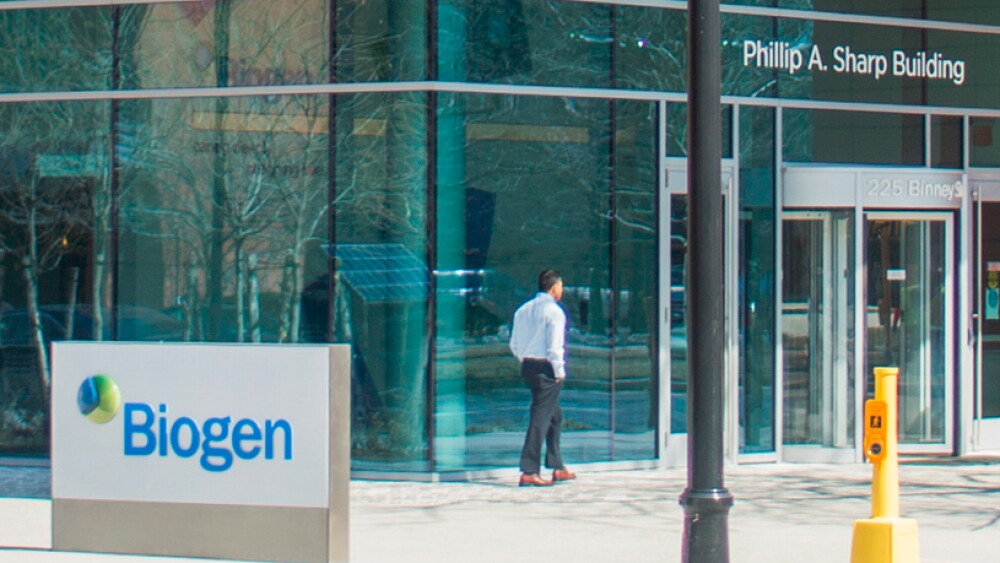November 11, 2016
(Last Updated: November 17, 2016 @ 9:05am PT)
By Alex Keown, BioSpace.com Breaking News Staff
Shares of Biogen are down more than 2 percent this morning as shares dip to $316.68 per share. Although the stock has risen over the past few days, is it time to consider selling?
David Liang, an analyst writing at The Motley Fool thinks so. In his latest column, Liang provides three reasons it’s time for investors to “ring the register on Biogen.”
Pricing
With Biogen’s lead position in the multiple sclerosis market, Liang said some investors may feel comfortable, but that is a false sense of security. He said there are pricing concerns with the drugs, which are among the most expensive on the market. Liang also noted that Biogen will soon face generic competition from a drug marketed by Novartis.
“Loss of pricing power combined with an inevitable decline in prescription volume should have Biogen investors nervous about the company’s MS franchise,” Liang said.
Competition
Not only is pricing going to be a concern for Biogen’s MS platform, but Liang noted there are several companies that will provide some real competition for Biogen, particularly Roche and Celgene. Liang said Roche’s experimental Ocrevus could have the potential to treat more than 90 percent of all MS patients. Furthermore, Liang said Ocrevus could generate $4 billion in annual sales by 2022. One benefit of the Roche drug is it’s injected twice per year, as opposed to monthly like Biogen’s Tysabri.
In addition to Roche, Celgene’s ozanimod also has the potential to become a problem for Biogen. Trial data shows the drug is highly safe, Liang said. An oral medication, this could challenge Biogen’s Tecfidera. Analysts predict this drug could generate between $4 and $8 billion annually for Celgene if approved. Tecfidera brought in $987 million in the most recent quarter.
Tecfidera has received some negative press after Dutch doctors published a report in the “New England Journal of Medicine” saying more cases of brain infections may occur in patients taking drugs similar to the company’s top multiple sclerosis treatment. In their report the doctors noted that patients who take dimethyl fumarate, which Biogen markets as Tecfidera, are at “risk for opportunistic infections, ” including progress multifocal leukoencephalopathy (PML), which may initially present as new or worsening weakness in the body.
Potential Alzheimer’s Failure
Lastly, Liang said Biogen’s experimental Alzheimer’s disease drug aducanumab is “unlikely to succeed.” Although trial data shows aducanumab is effective at breaking down Amyloid plaque, which is thought to be a cause for Alzheimer’s, Liang said there still remains no definitive proof that it is the root cause of the dreaded degenerative disease.
“The combination of Biogen’s lack of experience in AD with the fact that AD therapies have had a 99 percent failure rate over the last decade doesn’t make me optimistic regarding aducanumab’s chances,” Liang said. “Regardless, investors will have to be patient, as Biogen’s phase 3 trials for aducanumab won’t produce top-line data until at least mid-2020.”





